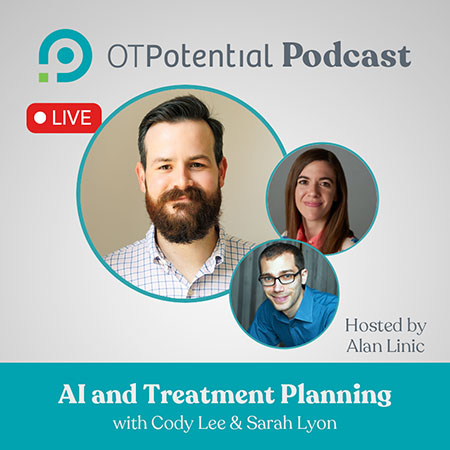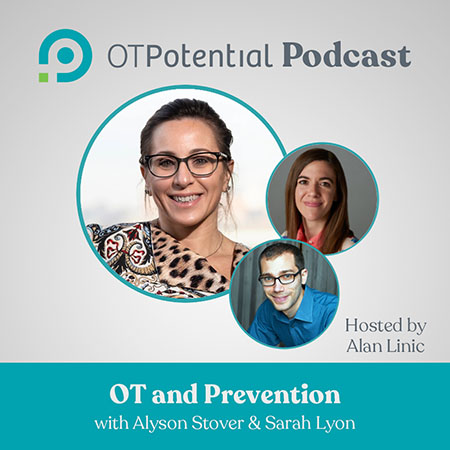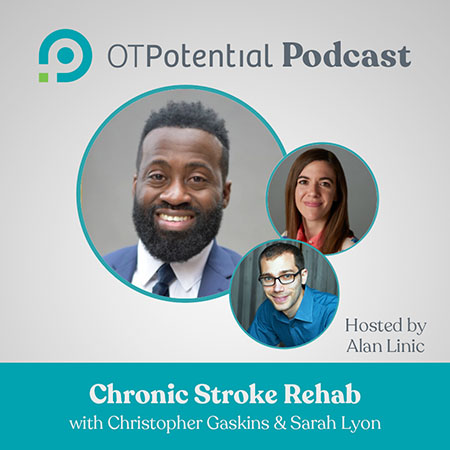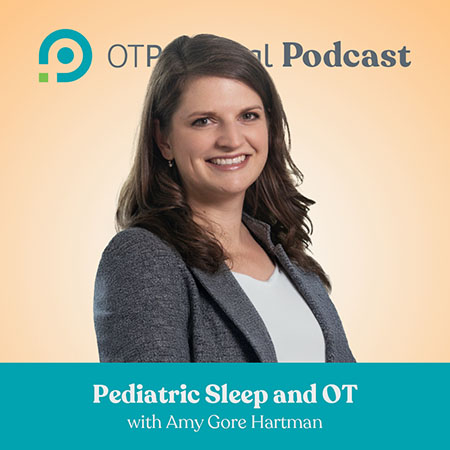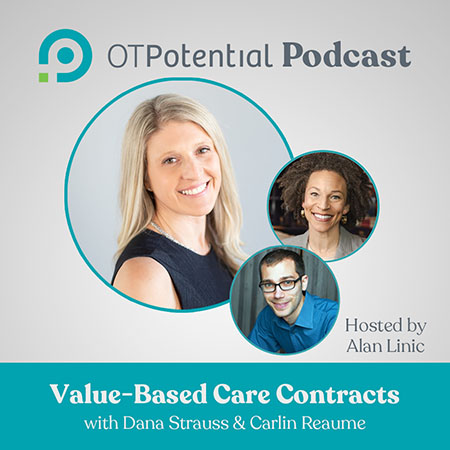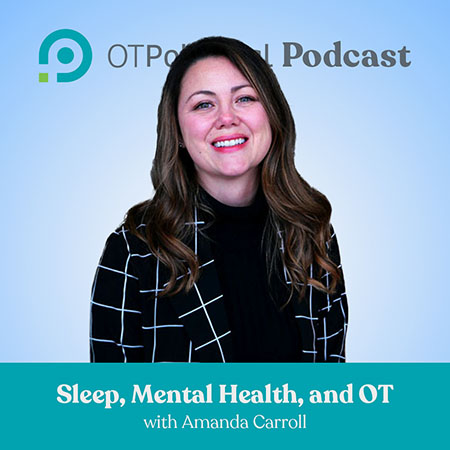Earn 1 hour of continuing education by joining OT Potential after taking this course.
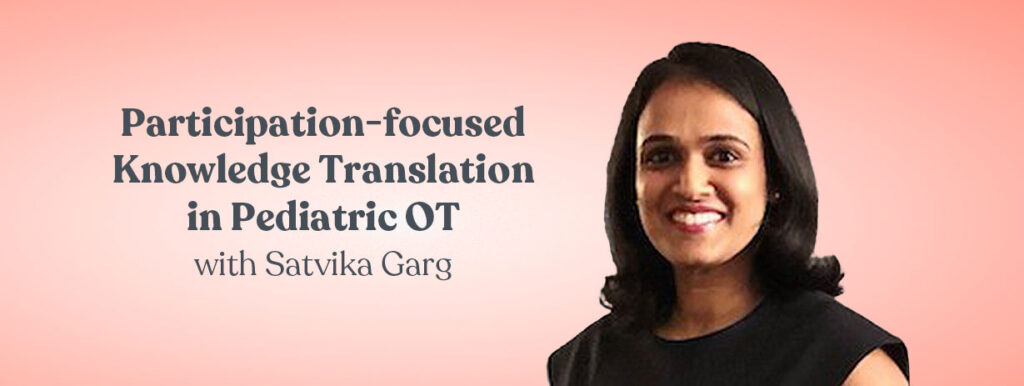
Listen: Apple | Spotify | Google
Both participation-focused OT and knowledge translation are hot topics in OT right now.
And, in this one-hour course we will explore a research article that puts forth a knowledge translation roadmap to accelerate the uptake of participation-focused OT assessments and intervention.
These are both big topics in their own right, and when you mesh them together it feels like more than one therapist can handle.
Honestly, that’s the point: Both knowledge translation and participation-focused OT are a team sport.
It’s going to take all of us to be both thinking differently as individuals and collaborating in new ways to solve problems for our clients. To help us unpack this journal article, and the practical implications for your OT practice, we are excited to welcome to the podcast our guest, Satvika Garg, PhD, OTR/L, Scientific Officer at the American Occupational Therapy Foundation.
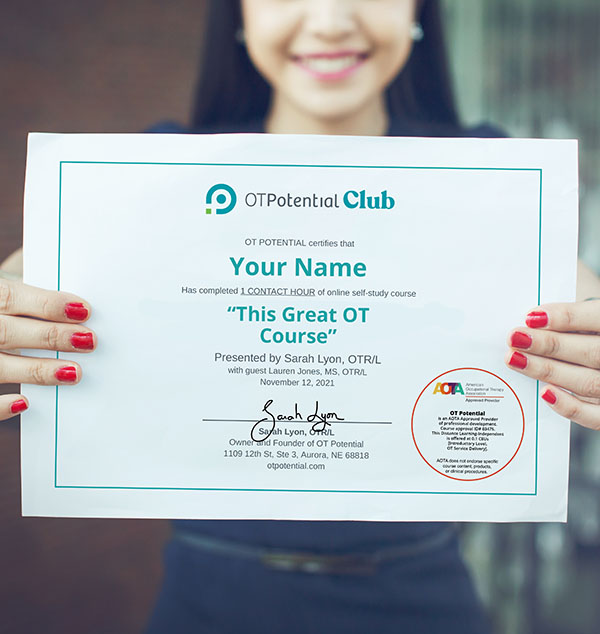
Earn 1 hour of continuing education
1. Listen to the podcast for free.
2. Sign up for the OT Potential Club.
3. Pass the quiz and download your certificate!
Primary Journal Article Explored
When you log in, be sure to check out the OT Potential Club’s written breakdown of the following research article. Then, share your questions and thoughts with fellow practitioners.
Supporting Research and Journal Articles
- Assessing participation of children with acquired brain injury and cerebral palsy: a systematic review of measurement properties
- Measures used to quantify participation in childhood disability and their alignment with the family of participation-related constructs: a systematic review
Supplementary Materials from Discussion
See the knowledge translation framework and the group behind it:
Participation-focused interventions:
- Partnering for Change
- Occupational Performance Coaching
- Context therapy
- Pathways and Resources for Engagement and Participation (PREP)
- Teens making Environment and Activity Modifications (TEAM)
- Local Environment Model (LEM)
Here are some cited examples of participation-focused assessments:
- Activity Card Sort (ACS)
- Assessment of Life Habits (LIFE-H)
- Canadian Occupational Performance Measure (COPM)
- Children’s Assessment of Participation and Enjoyment (CAPE) and Preferences for Activities of Children (PAC)
- Goal Attainment Scale (GAS)
- Pediatric Evaluation of Disability Inventory (PEDI)
- School Function Assessment (SFA)
- Vineland Adaptive Behavior Scales | Third Edition (Vineland-3)
- Young Child and Participation and Environment Measure (YC-PEM)
Learning Objectives
- You will be able to recognize participation-based assessments you can use in your pediatric practice.
- You will be able to identify participation based interventions with a growing evidence base behind them.
Agenda
Intro (5 minutes)
Breakdown and analysis of journal article (5 minutes)
- Intro to participation-focused pediatric rehab
- What does participation-focused rehab entail?
- What participation-focused interventions/assessments did they mention?
- Bridging the knowledge to practice gap
- What was the purpose of this paper?
- Theoretical foundations
- The Roadmap to Participation Knowledge Translation
- Discussion/Conclusion
- Takeaways for OT practitioners
Discussion on practical implications for OTs (with Satvika Garg) (50 minutes)
- Can you tell me how you first found OT?
- Can you tell us about how you became interested in research, and a little about your role as scientific programs officer at AOTF?
- What were your initial impressions of the article?
- Why is knowledge translation so hard?
- Why haven’t we historically been more focused on participation in OT?
- When you think about knowledge translation is there a particular model or framework you utilize?
- Is participation-focused practice the future of OT? And, where do you think the evidence sits today?
- If you were to jump into full-time pediatric practice today, what habits and systems would you implement for yourself to encourage knowledge translation?
- Thinking big-picture: what are you most excited about for our profession, when you think about knowledge translation and/or participation research in the next 5 years?
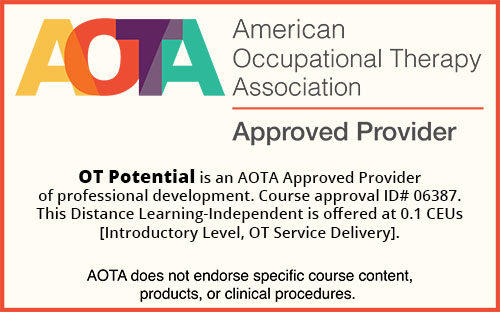
Instructional Methods/Registration/Special Needs Requests/Cancellation Policy
This course is an independent/self-study course delivered via podcast on iTunes, Spotify, Google Play & more.
If you need accommodations to take this course, please contact us and we will address your needs on an individual basis.
If we cancel a promoted course, event, live stream, or any other paid CEU offering prior to release, and you subscribe explicitly for said offering, you are eligible for a full refund if you did not complete and earn any other CEU quizzes or certificates during your subscription.
If a live webinar is cancelled that you signed up for, our system will automatically generate an email to you and if possible, we will inform you of the rescheduled date. Our most current webinar schedule will be found at: otpotential.com/live-ot-ceu-webinars.
Course Completion Requirements
In order to receive a certificate for this course, you must first participate in the podcast/webinar in its entirety. Then, you will need to take the quiz that will accompany the course and earn 75% or higher. If you pass, a certificate will be automatically generated and sent to your email. Quizzes for live (distance learning–interactive) webinars must be completed within 3 days of completing the webinar.
Target Audience/Educational Level
Our target audience is occupational therapy practitioners who are looking to learn about Knowledge Translation in Pediatric OT with Satvika Garg. The educational level is introductory.
Financial and Non-financial Disclosures
It is the policy of OT Potential to disclose any financial and non-financial interest the provider or instructor may have in a product or service mentioned during an activity. This is to ensure that the audience is made aware of any bias of the speaker.
We here at OT Potential have no financial stake in this topic. Our guest, Satvika Garg also has no financial disclosures.
Speakers
Satvika Garg, PhD, OTR/L
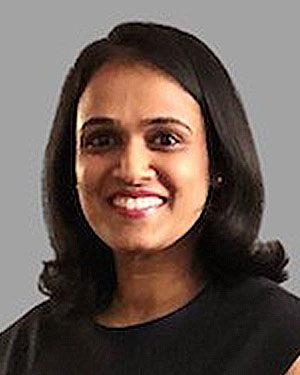
Dr. Satvika Garg is the Scientific Programs Officer at the American Occupational Therapy Foundation (AOTF). In this role, she develops, implements, manages, and evaluates the Foundation’s scientific programs and serves as the AOTF’s scientific programs representative to the stakeholder groups such as the AOTA, NBCOT, external scientific community, organizations, associations, governmental agencies, and academic institutions.
Prior to joining the AOTF, Dr. Garg worked as an Occupational Therapist/Research Collaborator at Children’s National Hospital in Washington, DC from 2015-2021 and as an Adjunct Faculty/ Teaching Assistant at New York University, NY from 2009-2014. Dr. Garg obtained her PhD in occupational therapy from New York University (NYU), NY and received her MS in OT from Tufts University, MA. Read full bio.

Sarah Lyon, OTR/L
Sarah’s passion is helping fellow OT practitioners translate evidence into daily practice. Sarah earned her BA in religion from St. Olaf College, then earned her master’s degree in occupational therapy from New York University in 2011.
Since then, she’s worked in numerous facilities, including a critical access hospital, an acute trauma hospital, and a state inpatient psychiatric hospital. Sarah is the founder/owner of OT Potential. Read more about OT Potential here.
This course was designed to meet your continuing education requirements
We designed the courses in the Club to meet the requirements for “online” and “independent/self-study” courses. To verify the requirements from your specific state (within the US), check out our post, OT Continuing Education Requirements. If you are outside of the United States and have questions, please contact us.
We are proud to be an AOTA Approved Provider and to meet the requirements for your NBCOT renewal.
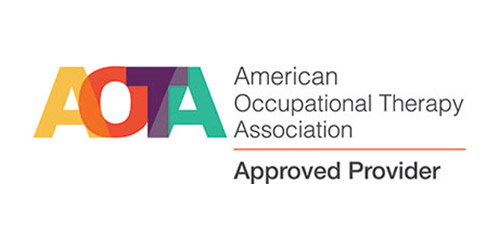
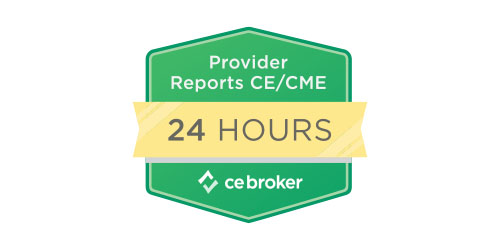
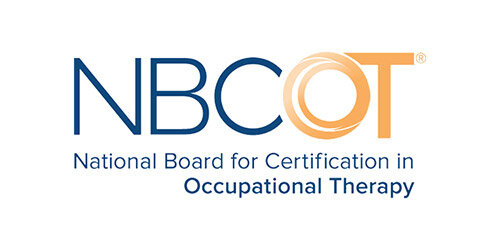
See our other OT courses!
Participation-focused Knowledge Translation in Pediatric OT • OT Potential
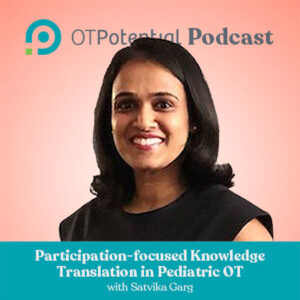
Today we’ll be covering “Participation-focused Knowledge Translation in Pediatric OT” We’ll look at new research and discuss it with Satvika Garg.
Course Provider: Organization
Course Provider Name: OT Potential
Course Provider URL: https://otpotential.com/
Course Mode: Online
Start Date: 2023-01-30
Duration: 01:00:00
Repeat Count: 5
Repeat Frequency: Yearly
Course Type: Subscription
4.6

